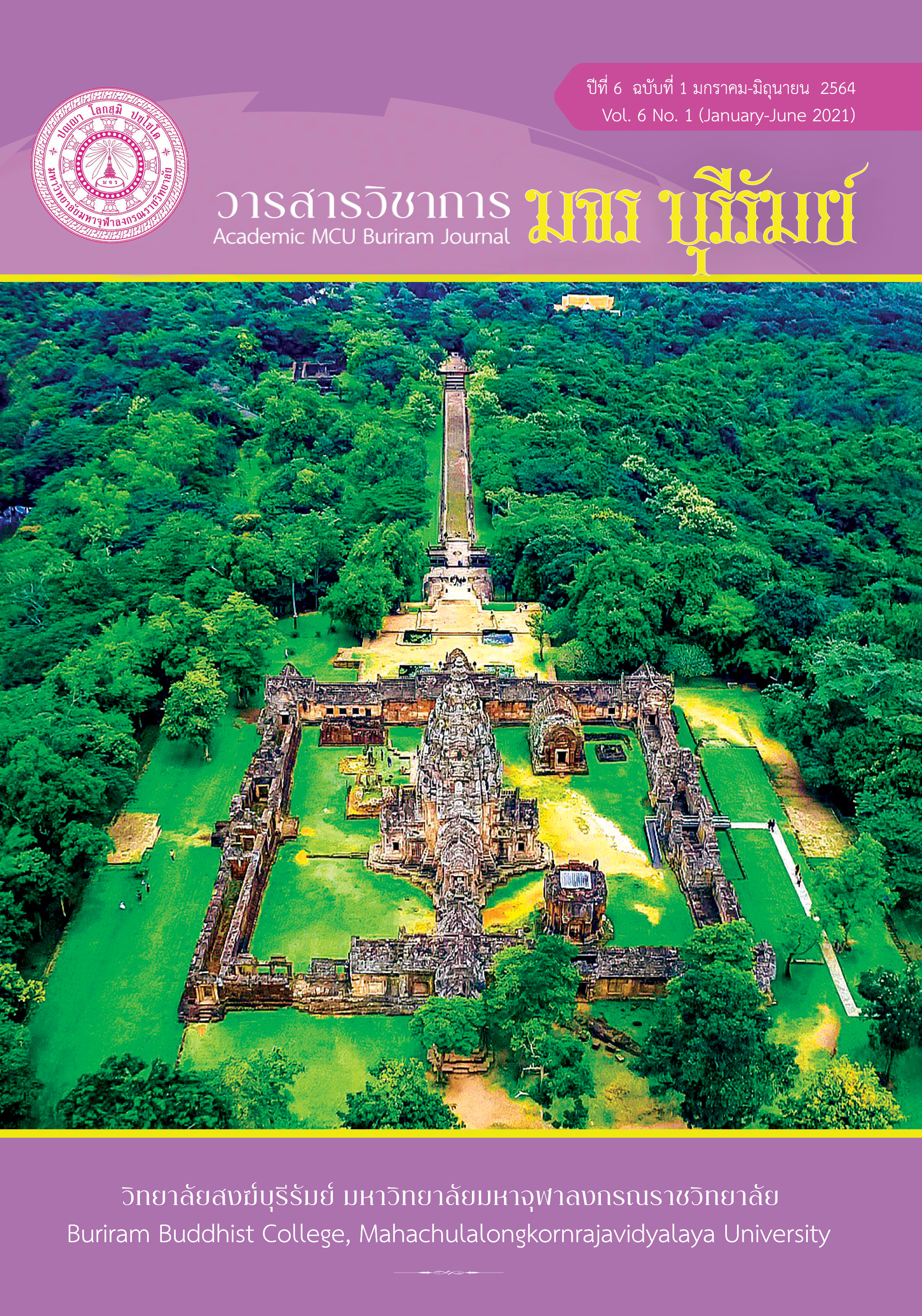Form of Administration of Sangha Affairs under the Sangha Act (No. 4) B.E. 2561 was Suitable for Landscape Society in Phetchaburi Province
Keywords:
Model of Sangha Administration, Sangha Act, Landscape Society in Phetchaburi ProvinceAbstract
This research article aims to 1) study the administration of Sangha Affairs under the Sangha Act (No. 4) B.E. 2561, 2) to study the administrative factors affecting the administration of the Sangha under the Sangha Act (No. 4), and 3) to synthesize the form of Sangha administration under the Sangha Act (No. 4) B.E. 2561.
The research result finds that:
- The administration of monastic affairs in Phetchaburi Province is governance, propagation, education, public utilities, educational welfare, public welfare, and the construction of Phetchaburi Phutthamonthon, all aspects operated simultaneously in accordance with their duties and responsibilities, with provincial priests district priest, sub district priest, and abbot administering the ecclesiastical affairs respectively.
- Administrative Factors: The Sangha of Phetchaburi Province follows clear systematic practice regulations, should build human resources in attitude, expression, social behavior with participation in concrete activities, joint decision-making, responsibility, community development, but the Sangha administration has no serious penalties for failing to obey the command of the commander, thus making it unsuccessful.
3. The model of Sangha administration in Phetchaburi province should play a proactive role in society, "change the role from recipient to giver", develop skills and expertise of personnel, such as governance, knowledge of the law, and dharma, propagation must work with multiculturalism, education must develop evaluation skills, public utilities need to explore the construction and maintenance procedures, education work to promote groups of people who need assistance, public welfare must integrate the role of monks, society and creation of Phutthamonthon must be driven by both the government, the business sector, and the people.
References
คณะสงฆ์จังหวดเพชรบุรี. (ม.ป.ป). แผนยุทธศาสตร์การปฏิรูปกิจการพระพุทธศาสนาจังหวัดเพชรบุรี (พ.ศ.2561 – 2564). เพชรบุรี: สำนักงานคณะสงฆ์จังหวดเพชรบุรี.
เฉลิมพล โสมอินทร์. (2546). ประวัติศาสตร์พุทธศาสนาและการปกครองคณะสงฆ์ไทย. กรุงเทพฯ: สํานักพิมพ์สูตรไพศาล.
ณัฐฐาพร จินดาสวัสดิ์. (2558). การปกครองคณะสงฆ์ในประเทศไทย กรณีศึกษา: มหาเถรสมาคม. การค้นคว้าอิสระรัฐศาสตรมหาบัณฑิต (การบริหารจัดการสาธารณะ) สาขาวิชาการบริหารจัดการสาธารณะ สำหรับนักบริหาร. คณะรัฐศาสตร์: มหาวิทยาลัยธรรมศาสตร์.
พระครูใบฎีกาอภิชาติ ธมฺมสุทฺโธ. (2558). ระบบการบริหารกิจการคณะสงฆ์ไทยในทศวรรษหน้า. ดุษฎีนิพนธ์พุทธศาสตรดุษฎีบัณฑิต. มหาวิทยาลัยมหาจุฬาลงกรณราชวิทยาลัย.
พระณรงค์ สังขวิจิตร. (2558). การปกครองคณะสงฆ์ไทยปัจจุบัน: ปัญหาและแนวทางแก้ไข. วิทยานิพนธ์หศิลปศาสตรมหาบัณฑิต สาขาวิชาพุทธศาสนศึกษา ภาควิชาปรัชญา. คณะศิลปศาสตร์: มหาวิทยาลัยธรรมศาสตร์.
พระธรรมโกศาจารย์ (ประยูร ธมฺจิตฺโต). (2549). พุทธวิธีบริหาร. กรุงเทพฯ: โรงพิมพ์มหาจุฬาลงกรณราชวิทยาลัย.
พระมหาอนุชา สิริวณฺโณ (พละกุล). (2556). การศึกษาพระสงฆ์กับการพัฒนาท้องถิ่น: กรณีศึกษาวัดเทพปูรณาราม ตำบลท่าพระ อำเภอเมือง จังหวัดขอนแก่น. วิทยานิพนธ์ศิลปศาสตรมหาบัณฑิต (การบริหารการพัฒนาสังคม). คณะพัฒนาสังคมและสิ่งแวดล้อม: สถาบันบัณฑิตพัฒนบริหารศาสตร์.
พระราชวรเมธี. และคณะ. (ม.ป.ป.). แผนยุทธศาสตรการปฏิรูปกิจการพระพุทธศาสนา 2560-2564 “การนำนโยบายสู่การปฏิบัติ”. ม.ป.พ.
ไพโรจน์ ดวงศรี. (2558). รูปแบบโครงสร้างองค์การและบทบาทการบริหารงานของพระสังฆาธิการที่มีผลต่อการบริหารกิจการคณะสงฆ์. วิทยานิพนธ์รัฐประศาสนศาสตรมหาบัณฑิต สาขาวิชารัฐประศาสนศาสตร์. บัณฑิตวิทยาลัย: มหาวิทยาลัยศิลปากร.
Downloads
Published
How to Cite
Issue
Section
License
ทัศนะและความคิดเห็นที่ปรากฏในบทความวารสารฉบับนี้ถือเป็นความรับผิดชอบของผู้เขียนบทความนั้น ไม่ถือเป็นทัศนะและความรับผิดชอบของบรรณาธิการ





